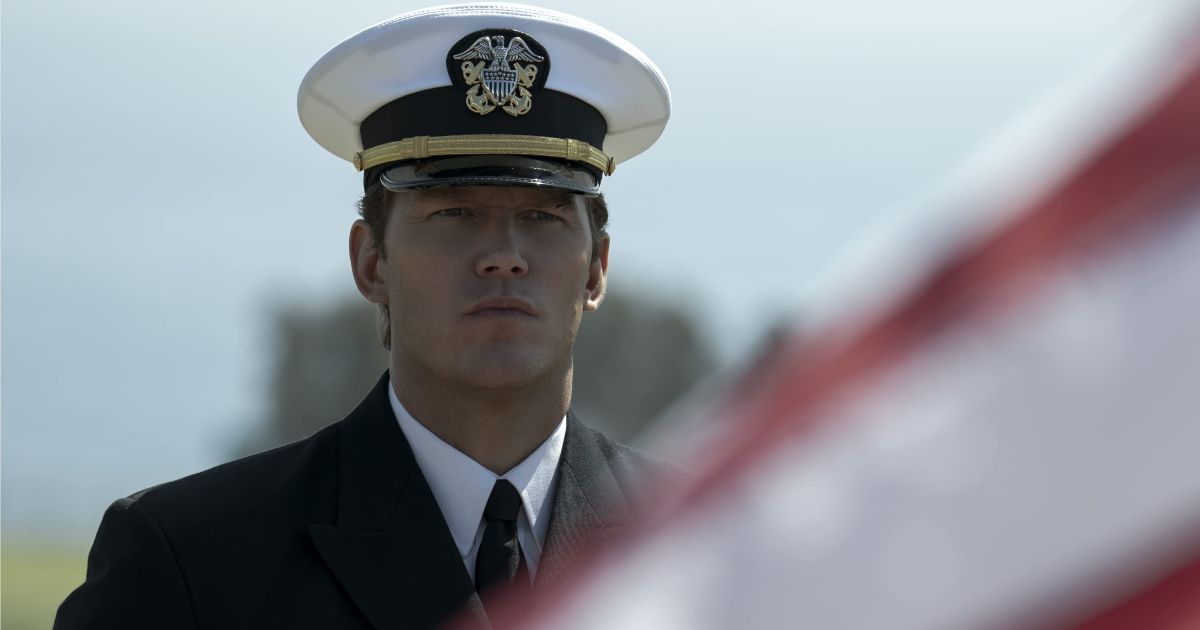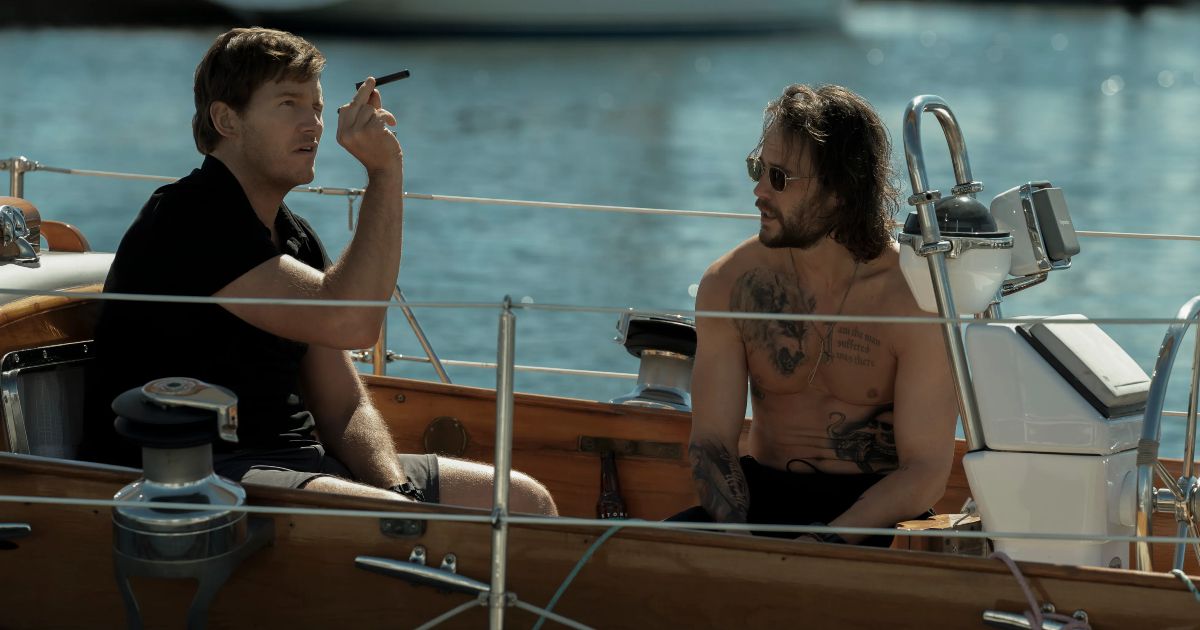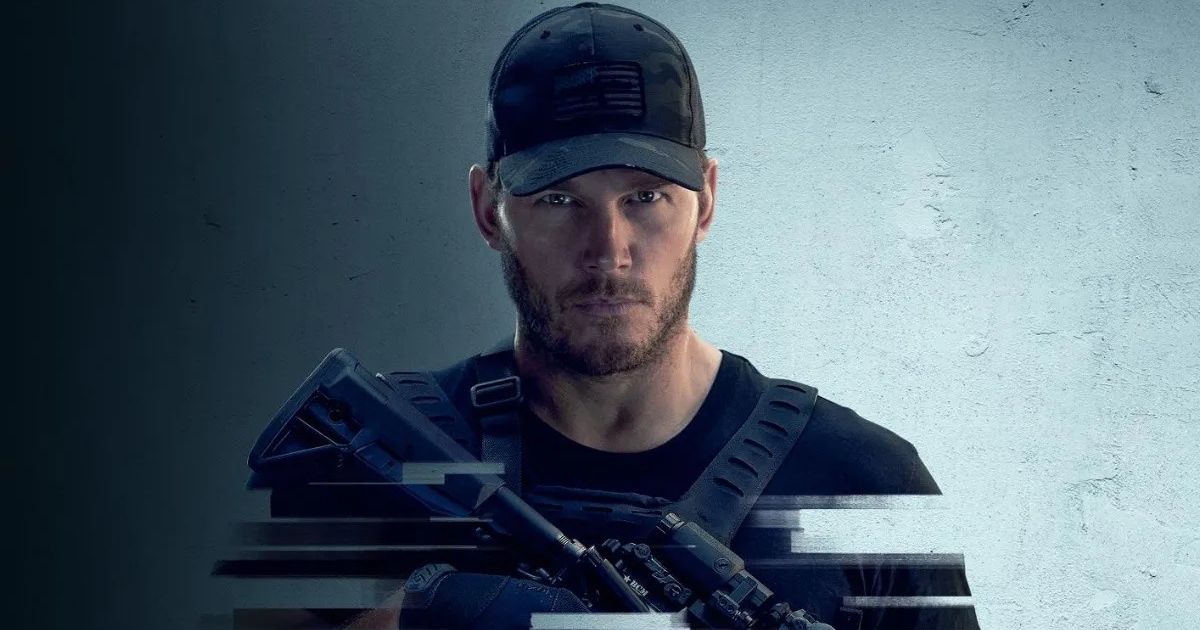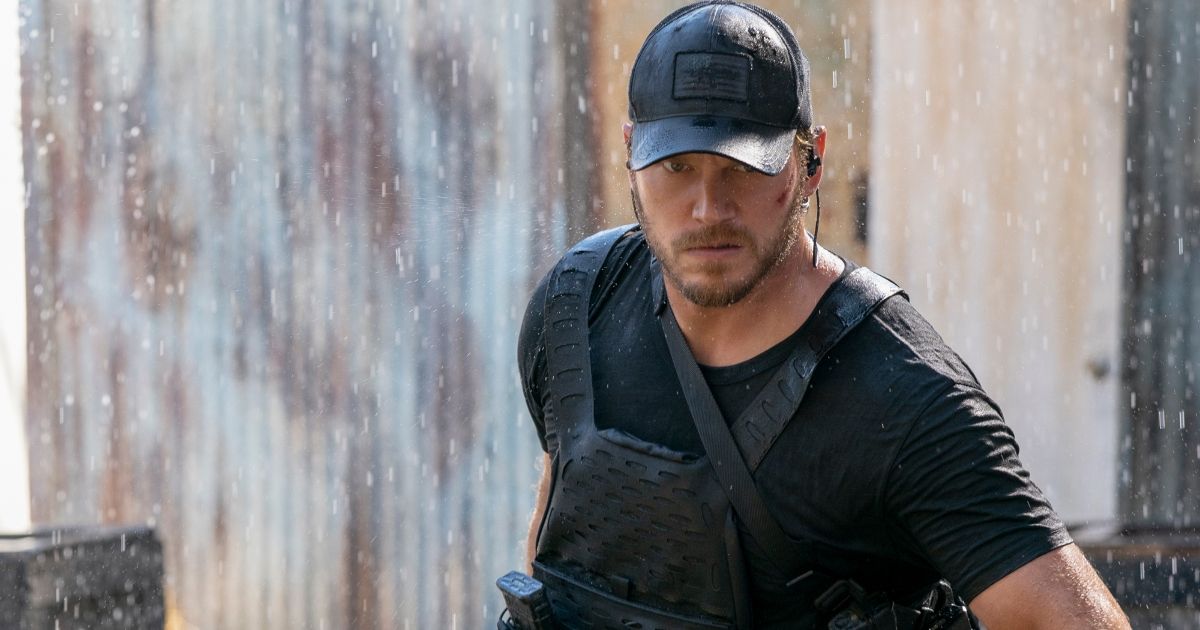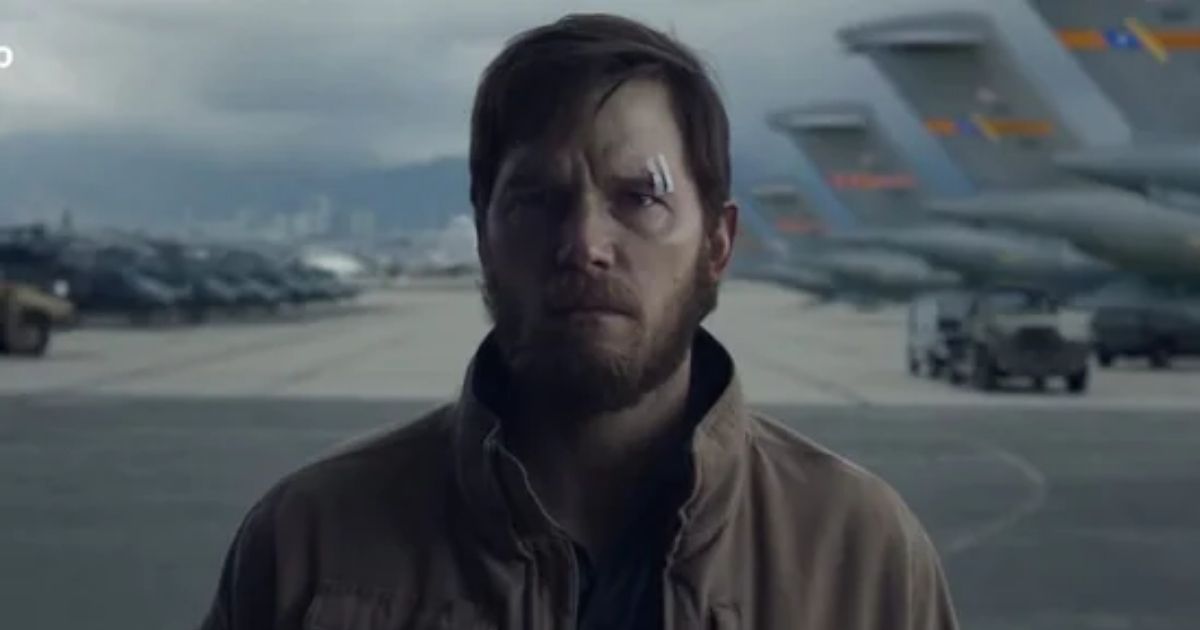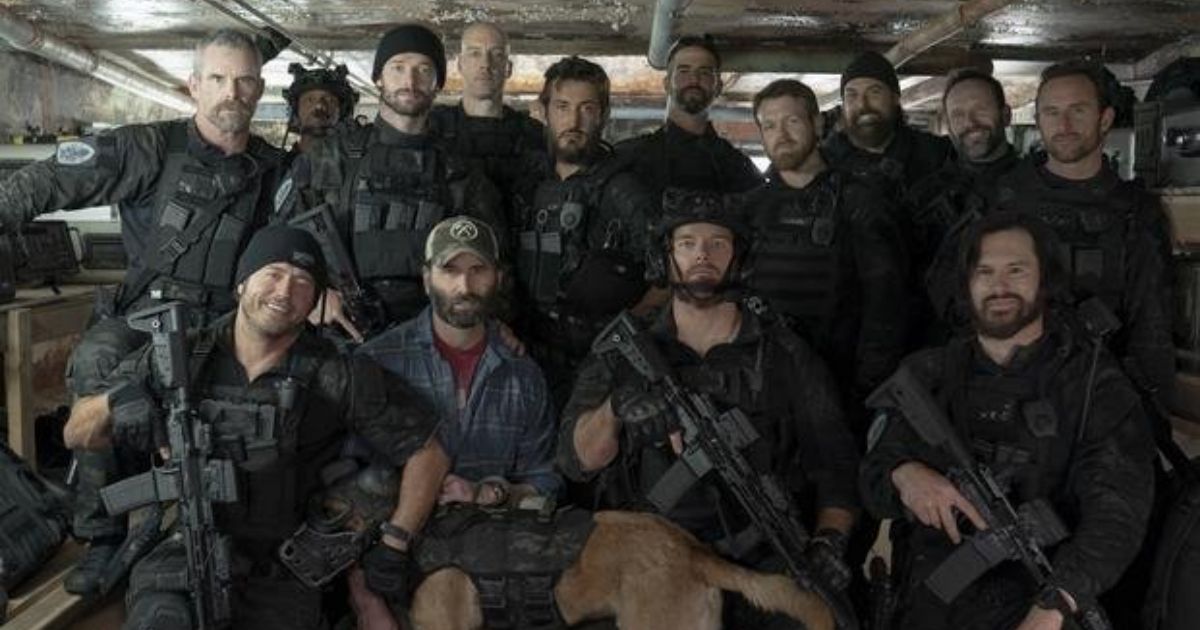The Terminal List has had nearly a 60% discrepancy between critics and audience scores on Rotten Tomatoes, with the former frequently dismissing the original Prime Video show and the latter almost universally adoring it. Have some critics confused enjoying a piece of media with endorsing an ideology?
Former Navy SEAL Jack Carr published The Terminal List in 2018; within a few years, he had written multiple New York Times Bestselling sequels and had Chris Pratt and Antoine Fuqua in a bidding war for the rights of his novel. The actor and director decided to team up and produce the book as a streaming television series, bringing on seasoned TV showrunner David DiGilio to help handle the brunt of the adaptation process.
What the team (a vast cast and crew extending far beyond Pratt, Fuqua, Carr, and DiGilio, and including many members of the Special Operations community) achieved with The Terminal List is exciting, dark, pulse-pounding television, but one which has been criticized for what is essentially political and ideological reasons. "We're maybe not in the age of objectivity, these days," DiGilio tells MovieWeb.
David DiGilio Helps Adapt The Terminal List
The Terminal List follows Navy SEAL James Reece as he returns home from a tragedy overseas, where bad intelligence led his unit into an ambush and left him as the sole survivor. After reuniting with his family, Reece either begins losing his mind, everything he's ever loved, or both, and plots a murky course of revenge against those who wronged him and his brothers in arms. With a rampage of vengeance aided by his only close friends, he crosses name after name off his list as he gets closer to the heart of the conspiracy behind his tragedies, with the audience not entirely sure how firm of a grip Reece has on his sanity. This ambivalence was largely a result of DiGilio's contributions as showrunner.
"I got very into this kind of notion of what's happening in Reece's head," DiGilio says. "What if this operation kind of follows him back, and he's not a reliable narrator? And so we kind of open up this question of, is he crazy or is there a conspiracy?" Pratt, Fuqua, and Carr all loved the idea of putting Pratt's sanity into question as a way to translate Carr's books (which provide an internal monologue and character perspective that the visual medium simply can't) into television. "I think the key to a good adaptation is to honor what makes the source material great (this amazing character, this incredible revenge journey), but then to create surprise as well, because I think if you just want to see a straight adaptation of the book, you should actually listen to the audiobooks, right? Ray Porter is incredible. The guy's amazing reading these books," DiGilio laughs.
He was able to flesh out the story for a television series by incorporating the perspectives of several other characters (a journalist, a police officer, a politician), all while questioning the sanity of the main protagonist. Along the way, The Terminal List is able to tell a story about PTSD, government and corporate corruption, and the concept of 'the warrior class.'
"As we adapted it, we also realized that there's an incredible story to tell about war following an operator home," DiGilio says. "The notion of trying to balance your life as a warrior and your life as a father is so difficult, and your worst fear is that your life as a soldier can endanger your family [...] the notion that your family could come to harm because of what you do. That's their worst nightmare. So, Jack Carr captures this in the book, and then we kind of dive deeper into the notion of what's happening in Reece's head, but also in his heart. That's the real pain that drives everything that he does."
Reviews Push Back Against the Perceived Politics of The Terminal List
"That's the story. Like, that's it," DiGilio says, stressing that the storytelling and character development of the show isn't meant to be partisan. However, the series has become a weird target for critics who dislike what they perceive to be strong conservative values. "The Terminal List is an unhinged right-wing revenge fantasy," The Daily Beast writes, "pandering to male red-state viewers with routine references to beer, guns, country music, and hunting." On the Roger Ebert website, Nick Allen writes that "The Terminal List is an alpha male cry for help [...] jingoism at its finest, and absolute worst."
Yet love has been shown for the ultra-violent, hypermasculine, revenge fantasy spectacles of John Wick, Nobody, and Django Unchained, and as well as for the films of Antoine Fuqua (who directs the pilot here and produces) such as The Equalizer and Training Day. It might be safe to say that the only major difference resulting in the knee-jerk reaction against The Terminal List (even if it's subconsciously) is politics. "The show is not a political show. It's a throwback show, and there's a very big difference between those two things. This is just a story about an incredible character pushed to his limit. It's a revenge story without constraints," DiGilio says. He continues:
That's the story, and maybe the most political thing about the show is that it's about the danger of institutions looking at individuals as data points. But guess what? That crosses all party lines right there right, and it was built by people from both sides of the aisle to tell a universal story that really appeals around the globe [...] For whatever reason, we kind of live in an attack-first climate, and so it felt that a lot of critics came at it with the political lens. But then you look at the fans, and the fan reaction is "Hell yes!" From both sides of the aisle, from everybody, there is a sense of empowerment, excitement, and entertainment that comes from the story that the fans are embracing.
Authenticity and Military Operations in The Terminal List
Being an authentic story about the Special Operations community probably causes both fan excitement and political distancing and dismissal. 'Supporting the troops' or being 'pro-military,' along with exploring what masculinity and heroism means for a lot of Americans, now carries political baggage. Regardless of politics and ideology, though, almost everyone agrees that cinema and the arts should be more representative of the authentic experiences of individual people.
This is why it's so important to have more Black voices in movies, more female writers and directors, more people of color, queer experiences, and every facet of the human condition in art. The lives of people in the military and the experiences of the Special Operations community compose one of those many amalgamated voices in culture's polyphonic orchestra which should be heard.
"We knew we had made an authentic story," DiGilio says, "and this is the age of authenticity and representation in mass media. It's incredible. But then you can't simultaneously say that the military experience doesn't count in that. It's hypocritical. The lengths that everyone has gone to [on The Terminal List] in order to tell something that feels authentic to that experience, you know, it should be celebrated, and whether you have connections to that side or not, it's something that people need to experience."
Whatever a person thinks about U.S. foreign policy, military spending, or guns should never get in the way of empathy, of trying to understand the stories and experiences of other people, and of storytelling about the lives of different individuals. Watching The Terminal List is a unique glimpse into the authentic feelings and perspectives of a Special Operations community. Part of this authenticity is due to author Jack Carr's SEAL experiences, but also the fact of just how many members (or family members) of the military were present in both the cast and crew of The Terminal List.
Military Members Make Up the Cast and Crew of The Terminal List
"The genesis of the show is through Chris Pratt and his connection to the Special Operations community," DiGillio says. "When he did Zero Dark Thirty, he trained with a Navy SEAL named Jared Shaw, and they became best friends out of that. And when Jared Shaw was leaving the SEAL teams, he knew he wanted to ultimately get into storytelling, into entertainment, and acting, producing, and he had crossed paths with Jack Carr." One thing led to another, and soon The Terminal List was being made, with Shaw and Carr helping to bring in a variety of people with authentic experiences from the military and the Special Operations community.
"I had in the writers' room either former military or a lot of writers who, like myself, have family who were in the military," DiGilio says, mentioning former Army Ranger turned screenwriter and producer Max Adams, as well as former SEAL turned actor and technical advisor Ray Mendoza. "Just in front of the camera, there's over 25 actors of military background in major roles, including almost all of Alpha platoon, who you see in the beginning, and all of HRT, who you see in episode 106. Those are all military or combat veterans. And I mean, we're talking all the way through post-production," DiGilio says, noting the myriad ways his team relied upon people with military experience.
"There's a sense that Hollywood doesn't care about representing that properly," DiGilio says. "Then that can be extrapolated out as 'Oh, Hollywood doesn't care about what we went through or our experience.' But the truth is, we care deeply [...] we just often don't know what we don't know. And what is great about the team that made this is we recognized that right out of the gate, and we made sure that the people who know are part of this. Jack Carr was reading every script, every outline, you know, because that's how you honor their experience, you put in the effort to get it right."
"My hope really is that the show sets a new bar for military authenticity in film and TV," DiGilio says, "and that my fellow producers, showrunners, and everybody else tries to maintain that bar. Because it's truly appreciated by our veteran community." Whatever ideologies critics and audiences may have, The Terminal List is an exciting window into the minds and lives of an important community, and that's something to appreciate.

